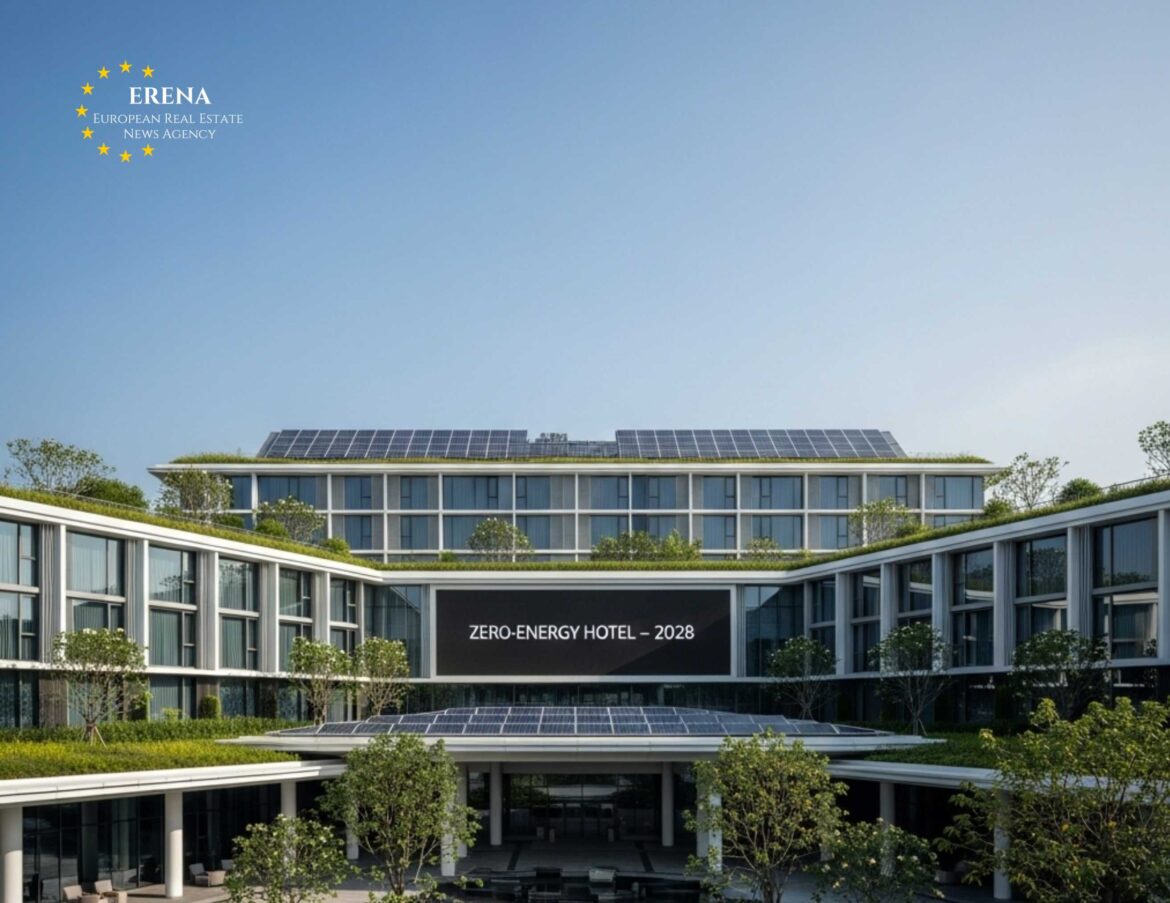By 2028, Singapore will mark a major milestone in its green urban strategy with the opening of the country’s first zero-energy hotel in the Changi district. This forward-looking project, developed in collaboration with Changi Airport Group, the Urban Redevelopment Authority (URA), and private developers, is set to redefine hospitality standards in Asia through sustainable architecture and innovative energy management.
Future-Oriented Architecture and Green Technologies
Strategically located near Changi Airport, one of Asia’s busiest and most awarded aviation hubs, the hotel is designed to meet the prestigious Green Mark Platinum Zero Energy certification from Singapore’s Building and Construction Authority (BCA). This means the hotel will produce as much energy annually as it consumes.
The design will integrate:
- Rooftop and façade solar panels
- Smart ventilation systems
- Passive cooling techniques
- Sustainable construction materials
- LED lighting and energy management automation
Over 95% of the hotel’s energy needs will be met on-site using solar photovoltaic (PV) systems, with any remaining consumption offset through green energy credits or optimizations.
Water Conservation and Self-Sufficiency
In line with Singapore’s commitment to water sustainability, the hotel will feature:
- Rainwater harvesting systems
- Greywater recycling units (for shower and sink water)
- Green roofs and biophilic courtyards for passive cooling and filtration
These systems are expected to cover over 70% of the hotel’s water demand, significantly reducing dependency on municipal water supply.
Impact on the Hospitality Market
Singapore’s hospitality sector remains one of the most competitive in Southeast Asia. As of 2024, hotel occupancy rates averaged around 82%, with nightly room rates often exceeding €160. With the introduction of a zero-energy hotel, analysts predict:
- Increased interest from corporate clients seeking ESG-compliant accommodations
- Growth in eco-conscious tourism
- Expansion of the MICE (Meetings, Incentives, Conferences, Exhibitions) segment in the sustainable space
Financial Scope and Investment Insights
Although exact investment figures have not been disclosed, industry experts estimate construction costs may exceed €110–130 million, due to:
- Advanced architectural and engineering requirements
- Smart climate systems and building automation
- Import of sustainable materials and equipment
Nevertheless, these higher initial costs are expected to be offset by long-term savings on energy, water, and maintenance, alongside a premium branding effect.
Comfort Without Compromise
Despite the eco-focus, the hotel is expected to deliver a high standard of luxury and convenience. Plans include:
- Around 180 to 220 guest rooms
- A restaurant featuring organic and locally sourced cuisine
- Conference rooms with CO₂-sensitive climate controls
- Courtyards with natural ventilation
- Gym and wellness zones with minimal energy consumption
All staff will be trained in green operations and guest engagement strategies to align with sustainability goals.
Government Support and Policy Alignment
The project aligns with Singapore’s national Green Plan 2030, which includes:
- A commitment to reduce carbon emissions by 36% by 2030
- Mandatory Green Mark certification for new large buildings
- Active encouragement of private investment in sustainable infrastructure
The Changi zero-energy hotel is expected to act as a flagship model for future public-private ESG initiatives.
Regional Replication Potential
If the project proves successful, similar zero-energy hotel developments may be launched in other strategic areas of Singapore:
- Marina Bay (luxury tourism hub)
- Sentosa Island (resort and recreation zone)
- Tampines and Pasir Ris (smart city experimental districts)
Singaporean developers are also exploring opportunities to export the model to Malaysia, Indonesia, and Vietnam — markets where green hospitality is gaining traction.
Market Reception and Industry Signals
Since the announcement:
- Travel and tour operators have expressed interest in partnership
- Multiple international hotel chains are reportedly in talks for operating rights
- Local banks are exploring green credit lines for future hospitality projects
Analysts believe demand for such properties will grow steadily, especially as international ESG regulations tighten.
Conclusion
Singapore’s upcoming zero-energy hotel in Changi is far more than a technical showcase — it is a symbol of how sustainability, innovation, and luxury can coexist in the hospitality sector. As climate-conscious tourism becomes mainstream, Singapore once again positions itself as a leader in urban and environmental transformation.
The project is poised to inspire not only a new generation of green buildings in Southeast Asia but a rethinking of what responsible hospitality can look like in the 21st century.

